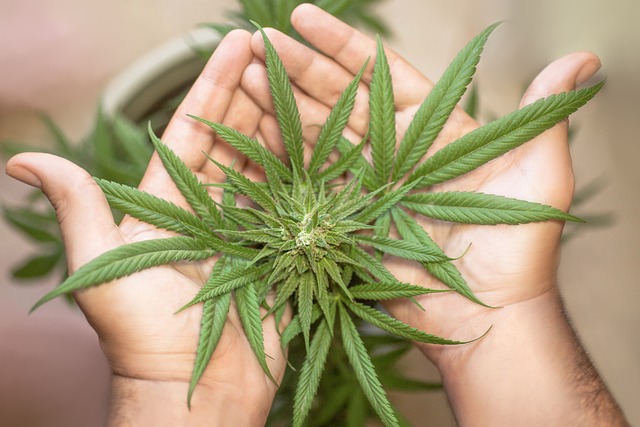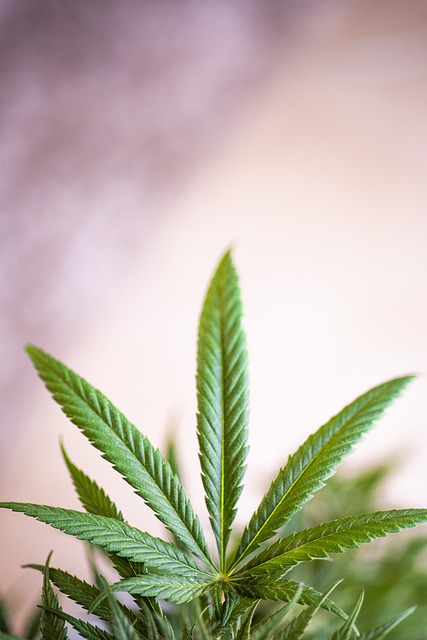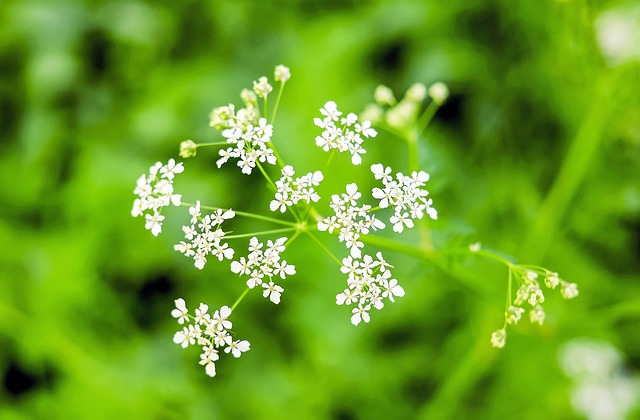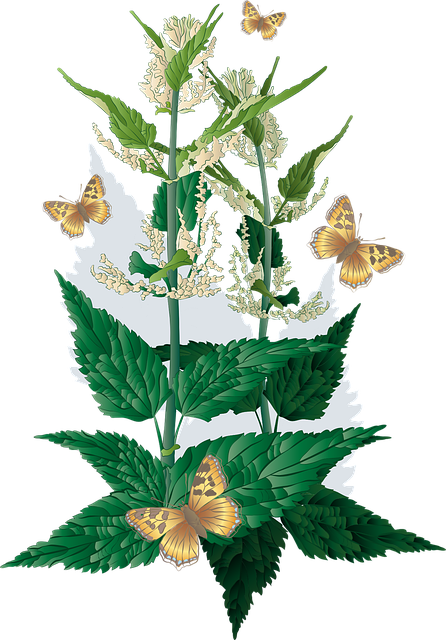As of early 2023, THCA (Delta-9-tetrahydrocannabinolic acid) possesses a nuanced legal status in Kansas. While it's not explicitly illegal under state laws, THCA remains in a legally ambiguous space due to its classification as a controlled substance under federal regulations. The state allows certain medical conditions to use low-THC CBD oil, but this doesn't directly clarify the legality of THCA flower consumption. In Kansas, THCA is legal, particularly when derived from hemp containing less than 0.3% THC, according to the 2018 Farm Bill. However, state regulations require that such products be purchased from licensed dispensaries and are subject to stringent quality controls. Consumers must source THCA flowers from compliant, reputable vendors who provide transparent sourcing, lab test results, and adhere to health and purity standards. It's crucial for anyone interested in THCA's potential therapeutic benefits to stay informed on both state and federal legal changes, as well as consult with healthcare professionals before use. The evolving legislative landscape in Kansas underscores the importance of understanding the intricacies of THCA's legality and its distinct differences from psychoactive THC.
exploring the nuanced landscape of cannabinoid compounds, this article delves into the emergence and utilization of THCA flowers, particularly within the context of Kansas law. With a focus on understanding THCA’s potential benefits and legal implications, we navigate the intricacies of sourcing and cultivating these plants responsibly. As we discuss their effects, storage tips, and the critical process of decarboxylation, our aim is to empower readers with knowledge for informed use and advocacy. Join us as we explore the therapeutic potential of THCA flowers, the legal distinctions between hemp-derived and cannabis-derived products in Kansas, and the scientific research underpinning their impact. This comprehensive guide will also provide best practices for consumption, advocate for policy change, and offer insights into the future of THCA legality across the United States.
- Exploring THCA Flower Legality in Kansas
- Understanding THCA and Its Potential Benefits
- Sourcing Quality THCA Flowers Within Legal Boundaries
- Growing Your Own THCA Flowers in Kansas: A Legal Guide
- The Effects of THCA: What Users Can Expect
Exploring THCA Flower Legality in Kansas

In recent years, the conversation surrounding cannabis and its derivatives has become increasingly nuanced, with the THC-A flower gaining attention for its potential therapeutic benefits. In Kansas, the legal status of THCA flower, a non-psychoactive form of cannabis rich in THC acid, has been subject to careful consideration by lawmakers and regulators. As of the latest updates, Kansas has specific laws regarding the use and possession of cannabis and its derivatives. THCA, specifically, is not explicitly illegal under state law, but it falls into a grey area due to federal regulations that classify all cannabis-related compounds as controlled substances under the Controlled Substances Act. However, Kansas has enacted laws allowing for the use of low-THC cannabidiol (CBD) oil for certain medical conditions. This has led to some confusion regarding the legality of THCA flower possession and consumption. Patients with a qualifying condition can legally access CBD oil with trace amounts of THC, but this does not extend to THCA flower outright. It’s important for individuals to understand that while there is no specific statute criminalizing the possession of THCA flower in Kansas, it could still be considered a legal grey area and subject to interpretation by law enforcement. Those interested in the therapeutic properties of THCA should carefully review state laws and consider consulting with legal counsel before purchasing or using any cannabis-derived products in Kansas. As the landscape of cannabis legislation continues to evolve, stakeholders eagerly anticipate clearer guidelines that will provide more definitive answers regarding the legality of THCA flower in Kansas. Keeping abreast of these developments is crucial for anyone seeking clarity on this matter.
Understanding THCA and Its Potential Benefits

10 states across the U.S., including Kansas, have legalized Delta-9-tetrahydrocannabinol (THC) for medical or recreational use, while also recognizing another cannabinoid, Tetrahydrocannabinolic Acid (THCA), as a non-psychoactive compound found in raw cannabis plants. THCA is the precursor to THC and possesses unique properties that are gaining attention from researchers and health enthusiasts alike. Preliminary studies suggest that THCA may offer a range of potential therapeutic benefits without the psychoactive effects typically associated with its degraded form, THC. These potential benefits include anti-inflammatory, anti-nausea, anti-anxiety, neuroprotective, and analgesic properties, making it an area of interest for those exploring natural alternatives for health and wellness.
In Kansas, where the legal landscape is evolving, THCA flower tips are becoming increasingly relevant for both medical patients and wellness consumers. The state’s legislation allows for certain forms of cannabis to be used legally, provided they adhere to specific guidelines and regulations. This has led to a burgeoning market for high-quality THCA-rich hemp flowers, which can be consumed raw to harness the full spectrum of cannabinoids and terpenes without the psychoactive impact. As interest in the potential health benefits of THCA continues to grow, consumers are encouraged to educate themselves on proper dosing, strain selection, and method of consumption to maximize the effects they seek. Whether for its potential wellness properties or simply as a supplement to one’s daily routine, understanding THCA and its legal status in states like Kansas is crucial for anyone interested in exploring this cannabinoid.
Sourcing Quality THCA Flowers Within Legal Boundaries

Navigating the legality and quality of THCA flowers requires careful consideration, particularly for consumers interested in their therapeutic or recreational benefits. In states where THCA flowers are legal, such as Kansas, sourcing these products should be done from reputable and licensed dispensaries to ensure compliance with state laws. The 2018 Farm Bill, which federally legalized hemp-derived products, including THCA, containing less than 0.3% THC, has paved the way for such products to be legally available in various forms across different states. However, state-specific regulations can vary, and it’s crucial to stay informed about the local laws governing cannabinoids. In Kansas, consumers must adhere to the state’s guidelines, which include purchasing from licensed retailers and understanding the distinctions between hemp-derived and marijuana-derived products. To ensure you’re obtaining quality THCA flowers within legal boundaries in Kansas, prioritize vendors with a transparent sourcing process, third-party lab testing results, and a strong reputation for product purity and potency. This due diligence not only guarantees the legality of your purchase but also safeguards your well-being by preventing the intake of contaminated or mislabeled products. Always verify the legal status of THCA flowers in your area before making any purchases, and consider reaching out to local health departments or state regulatory agencies for the most up-to-date information.
Growing Your Own THCA Flowers in Kansas: A Legal Guide

In Kansas, the cultivation and possession of THCA flowers have become increasingly regulated following the passage of the Farm Bill in 2018, which legalized hemp-derived products, including THCA, at the federal level. However, state laws can be more stringent than federal regulations, so it’s crucial to stay updated on local legislation. As of my knowledge cutoff in early 2023, growing THCA flowers is permissible under certain conditions. Kansas’ Industrial Hemp Act governs hemp cultivation within the state, and only licensed or registered growers are authorized to cultivate THCA flowers. If you’re interested in growing your own THCA flowers in Kansas, ensure that you comply with all state regulations. This includes obtaining the necessary licenses or permits from the Kansas Department of Agriculture. Keep in mind that the distinction between hemp and marijuana based on THC concentration is key; THCA flowers must contain less than 0.3% THC on a dry weight basis to be considered legal hemp. Cultivators must also adhere to strict planting, growing, and harvesting protocols as outlined by state and federal guidelines to avoid legal complications. It’s important to monitor the evolving legal landscape, as laws and regulations can change, impacting your ability to grow THCA flowers in Kansas. Always prioritize legality and compliance when embarking on cultivating THCA flowers.
The Effects of THCA: What Users Can Expect

delta-9-tetrahydrocannabinolic acid (THCA) is one of the many cannabinoids found in the Cannabis sativa plant and its legal status varies by jurisdiction. In Kansas, THCA exists in a legal gray area; while THC, the psychoactive form of THCA, is illegal for recreational use, raw cannabis flowers that contain THCA are not explicitly outlawed as they do not contain the psychoactive components that are regulated by state law. Users interested in the potential effects of THCA should be aware that its interaction with the body’s endocannabinoid system can produce a range of benefits without the high associated with THC. Research suggests that THCA may have anti-inflammatory, neuroprotective, and analgesic properties. It is often used by those seeking the therapeutic effects of cannabis without psychoactive influence. Users can expect a sense of calm and relaxation, potentially aiding in stress relief and promoting a general feeling of well-being. Additionally, preliminary studies indicate that THCA may have promising effects for nausea and vomiting, as well as appetite stimulation. However, it is crucial for users to adhere to the legal frameworks governing cannabinoids in their specific region and to consult with healthcare professionals before incorporating THCA into their health regimen. As THCA research continues to evolve, so does the understanding of its potential benefits and applications within the realm of wellness.
In conclusion, the burgeoning interest in THCA flower tips, particularly within the legal landscape of Kansas, has shed light on both the potential benefits and the nuanced legalities surrounding its use. As outlined in this article, understanding THCA’s status as a legal compound in Kansas is crucial for enthusiasts looking to explore its effects responsibly. Whether through sourcing quality products from reputable vendors or considering growing your own within the confines of state law, the options for engaging with THCA are becoming increasingly accessible and informed. With this knowledge at hand, individuals can make educated decisions about incorporating THCA flowers into their wellness routines, guided by the legal frameworks that govern them.
